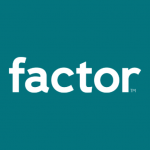Factor will be at these events this fall:
Activate Conference – San Fransisco
October 30, San Fransisco, CA
Enterprise IA: Empowering Lucidworks AI across the enterprise for the digital workplace
Presented by Gary Carlson.
AI-powered search delivers highly relevant digital experiences at innovative organizations–moving beyond the hype of AI to directly impact your bottom line. Better search results help customers find products and services to purchase, and helps employees find information and insights to do their jobs more effectively.
Search is an essential component of the digital workplace. The Digital Workplace is an ecosystem of information that is managed in multiple systems, exposed in multiple experiences, and needs to meet the needs of a wide range of users. This information drives decision-making, analytics, and knowledge sharing across the organization. When your information architecture, taxonomies, and metadata are implemented across the enterprise, the power of AI driven search is unlocked.
Taxonomy Bootcamp (KM World)
November 4-5, Washington D.C.
“5 Essential Components Of Taxonomy Governance”
Presented by Erica Chao.
Taxonomies are born into a world of change and need to be regularly updated in order to remain relevant and useful. Governance is the tool that can move your taxonomy team from a state of reactivity and fire drills to a state of controlled and measured taxonomy optimization. Using real-world examples, Chao shares five governance components that should be included in every governance plan as well as a governance assessment framework that you can use to assess maturity, identify gaps, and determine next steps to take your taxonomy governance to the next level.
“Improving Content Quality, Reuse, & Reporting”
Presented by Factor’s Theresa Putkey and Intel’s Melinda Geist
Large content sets, distributed authoring environments, and multiple websites built on different platforms make applying consistent and accurate metadata very challenging. Implementing enterprise taxonomy and metadata standardization addresses these issues with the end goal of improving data quality. Factor’s Theresa Putkey and Melinda Geist of Intel share their approach to increasing metadata quality across a diverse content ecosystem. Learn how they developed a content tagging strategy involving a diverse set of stakeholders to collect more accurate and consistent metadata from content owners.
Data Architecture Summit
October 14-17, Chicago, IL
“Designing, Building, and Maintaining Taxonomies for the Enterprise“
Presented by Gary Carlson.
Over the past two years, one of our clients has focused on improving data quality and reporting for their marketing initiatives. After initial analysis, they discovered that as their technology stack had grown up organically, as had the vocabularies and taxonomies used by each marketing channel and system.
In order to become a data-driven organization, they needed a governable solution that would enable a consistent language but also support the unique nature and requirements of each system. Addressing this allows for actionable insights based on high-quality data, even though the data is originating from multiple systems. The organization used both a top-down and bottom-up approach to centralize the management and propagation of taxonomies that are used to drive content management and analytics of the marketing organization. Currently, this model includes over 21 taxonomies and has been implemented in over 10 enterprise systems that feed their data lake.

